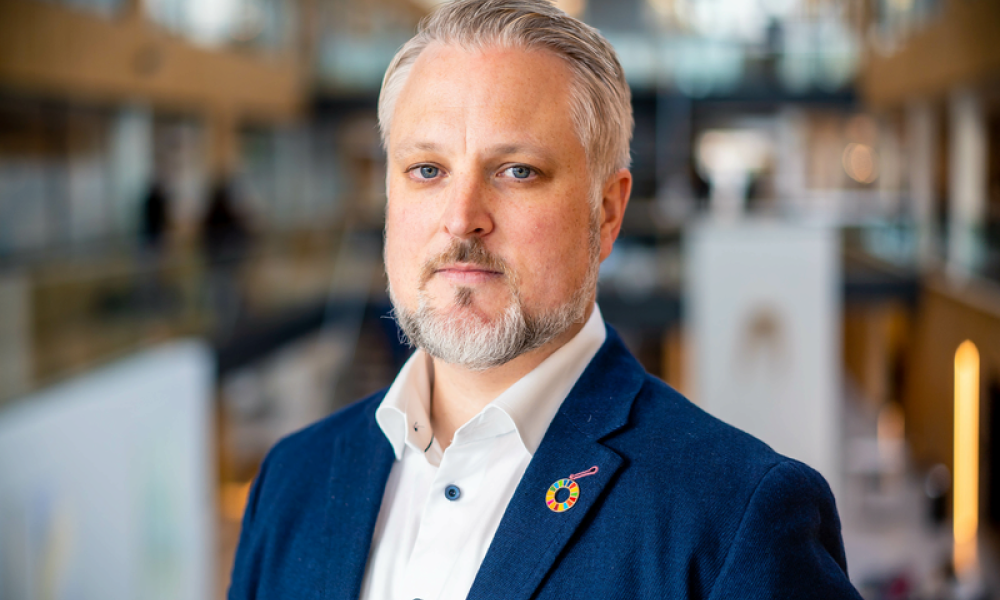Philip Ripman manages the Storebrand Global Solutions fund, a fossil-free global equity fund that invests in solution companies with services, products, or technology that, according to the fund company's assessment, contribute to the transition to a more sustainable society and align with the UN's Sustainable Development Goals. For Ripman, exclusions and dialogue alone are not enough to contribute to addressing the world's sustainability challenges. To progress faster, investments in companies with solutions to climate problems are also necessary.
How do you foresee 2024 from your perspective, that is, from a solutions perspective?
The super-election year 2024 is a year of national elections, including some of the world's largest economies such as India, the USA, Indonesia, Pakistan, Mexico, and Germany, to name a few. While elections are crucial for assessing the level of political support for themes during a term, many of the themes we focus on are global and have multiple drivers supporting them. A prime example is the UN Climate Conference (UNFCCC COP 28) held in Dubai in December 2023. I particularly take away three key insights from the meeting:
Transition Away from Fossil Fuels: Nearly 200 countries pledged to move away from fossil fuels, marking the first time a COP final decision explicitly targeted fossil fuels. This decision avoided calling for a complete phase-out but emphasized tripling investments in renewable energy and transitioning away from fossil fuels in power systems. This development was seen as a milestone, although the final text did not explicitly mandate the "phase out" of coal, oil, and gas.
Renewable Energy and Energy Efficiency: The global stocktake text from the summit called for tripling renewable energy capacity globally and doubling the global average annual rate of energy efficiency improvements by 2030. This ambitious goal was celebrated by energy experts as a necessary step to build a new clean energy system within this decade.
Climate Finance: COP28 addressed the crucial issue of climate finance, particularly for developing countries. The summit agreed on a text to implement the global goal on adaptation, aimed at helping developing countries with finance for transition, adaptation, and recovery from climate impacts. However, there were concerns about the watering down of language in the final version and the gap between needed and delivered adaptation finance.
Is the transition to renewable energy still primarily driven by the Paris Agreement?
There are other drivers at work than the Paris agreement in terms of renewable energy. That’s not to say that the agreement is not important, nor is it to detract from the fact that we need to deliver more renewable energy and deploy its use faster than before if we are to succeed at limiting global warming. However, there are many reasons why we will continue to see a focus on renewable energy:
- The relationship between China and the United States is hugely important, and much of recent US and EU regulation has been to curb Chinese influence.
- Diversifying value chains connected to renewable energy is important from an energy security perspective. If value chains become weaponized as a "war by other means", it would be catastrophic for continued deployment.
- Energy security is important across the political spectrum. As addendum to this, with the number of jobs connected to the energy transition already, all sides of the political spectrum will need to attract votes within these sectors to win elections.
- Other challenges that benefit from an energy transition include local air pollution, freshwater withdrawals and access, nature and biodiversity, and healthcare. The list is much longer.
Storebrand's solutions funds also have a social dimension – what's happening there?
Women's health has become an increasingly relevant topic in recent years, and its importance was further highlighted following the United States Supreme Court's overturning of the law (Roe v. Wade) that guaranteed women's right to choose abortion last summer. There has also been a growing interest from investors, with several relevant companies contributing to the improvement of women's health.
Historically, there has been limited research in this area, but progress is being made. In June last year, there was news of a breakthrough in research on endometriosis, a disease that affects up to one in ten women, meaning nearly 400 million people globally suffer from this condition. The breakthrough came from testing different variations of endometriosis, enabling more effective treatments for those affected. This development is similar to the progress made 30 years ago in research on cancers related to women.
"Femtech," is a term that has emerged in the market over the past decade, is another example of the growing interest in women's health. Short for "female technology," it refers to technological solutions designed to address various challenges within women's health. The development in this field in recent years has been driven by digitalization and personalized disease treatment. There has been a surge of new players in the market and several companies acquiring such technologies.
This is an area we currently invest in, an area we think has an exciting future and an area that is necessary if we are to achieve the Sustainable Development Goals.
Have we forgotten to ask you something that you see as important to keep an eye on in the new year?
Well, there is, of course, a lot we are keeping an eye on, and I could have talked much more about, for example, cybersecurity, where we identify and invest in several companies. Being connected forms the foundation of the modern digital economy, and access to digital services is one of the fund's themes under the social dimension. With increased digitization, serious cyber-attacks, the use of generative AI, and geopolitical tensions, cybersecurity has become a top priority for companies, despite higher costs and inflation. It's a trend that contributed significantly to returns last year and one that we see as strong going forward.





